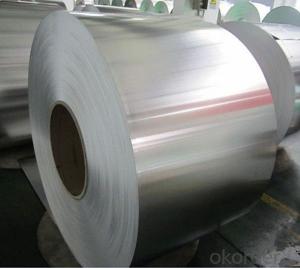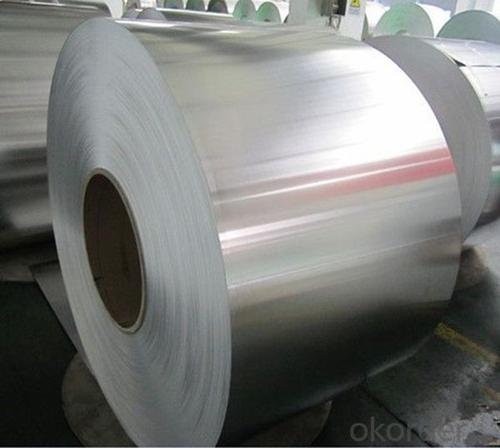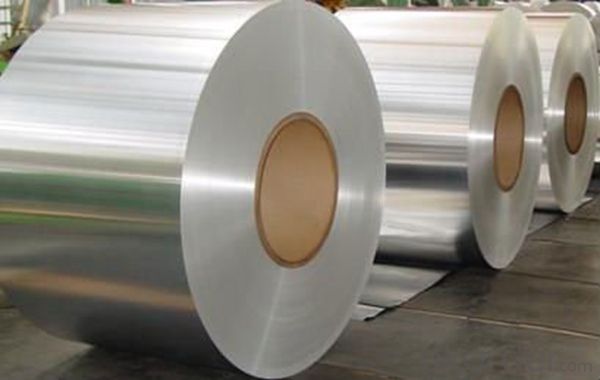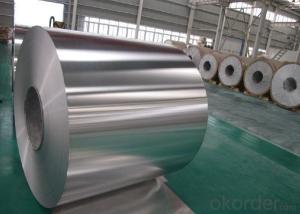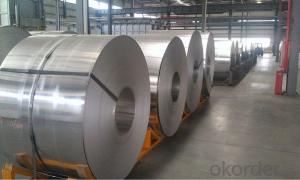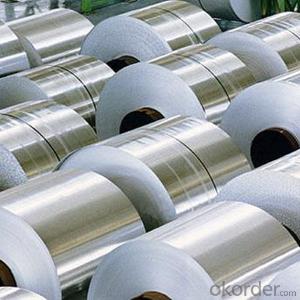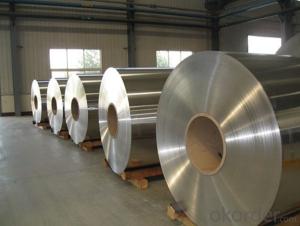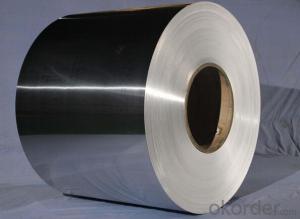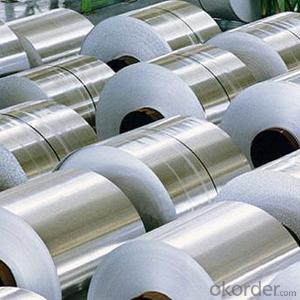AA3003 H12 Direct Rolled Aluminum Coil China Factory Direct Selling - Aluminum Coil Canada
- Loading Port:
- Shanghai
- Payment Terms:
- TT OR LC
- Min Order Qty:
- 5 m.t.
- Supply Capability:
- 10000 m.t./month
OKorder Service Pledge
OKorder Financial Service
You Might Also Like
Specification
1. Specification of AA3003 H12 Direct Rolled Aluminum Coil China Factory Direct Selling
Material | Alloy Aluminum 6063,6061,6005 or customer nominated |
Temper | T3, T4, T5, T6 |
Surface | Anodize, electrophoresis, powder coating, PVDF coating, wood grain painting, matted, etc. |
Colour | Any colour based on Standard Germany RAL Mark |
Length | Coating 6.5 meters, Anodizing 6.5 meters, Mill finish 5 meters |
Press Machine | 500-4000 tons all together 64 press lines. |
Fabrication | 1. Windows and doors; 2. Drilling; 3. Bending; 4. Cutting; 5. etc. |
Certificate | ISO 9001 |
Moulding | 1. Using our moulds, no fee; |
2. Using customer drawing, opening mould, usually about 10~50 tons then the moulding can be refunded. | |
3. Mould cost is negotiable base on the order quantity | |
Capability | Annual output 100,000 tons |
2. Application of AA3003 H12 Direct Rolled Aluminum Coil China Factory Direct Selling
(1).Interior: wall cladding, ceilings, bathrooms, kitchens and balconies, shutters, doors...
(2).Exterior: wall cladding, facades, roofing, canopies, tunnels,column covers , renovations...
(3).Advertisement: display platforms, signboards, fascia, shop fronts...
3. Feature of AA3003 H12 Direct Rolled Aluminum Coil China Factory Direct Selling
*Such coil is specially designed to replace aluminum ingot, due to the high export tax of aluminum ingot, the coil has better price than ingot.
*This type of coil can fit customer's remelting furnace just like ingot, no need to make any change to the production line that was previously used for ingot. The standard coil size and weight is very suitable for the feed gate of furnace.
*This type of coil causes less material wastage than ingot when remelted.
*Our coil is made directly from ore, no need to go though the ingot making process, quality is much better than other suppliers who use ingot scrap to make coil.
Be free from Oil Stain, Dent, Inclusion, Scratches, Stain, Oxide Dicoloration, Breaks, Corrosion, Roll Marks, Dirt Streaks and other defect which will interfere with use
4. Certificate:
SGS and ROHS(if client request, paid by client), MTC(plant provided), Certificate of Origin(FORM A, FORM E, CO), Bureau Veritas and SGS (if client request, paid by client), CIQS certificate
5. Image of AA3003 H12 Direct Rolled Aluminum Coil China Factory Direct Selling
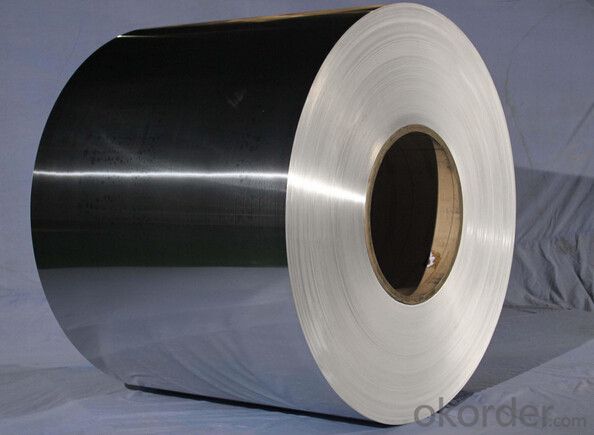
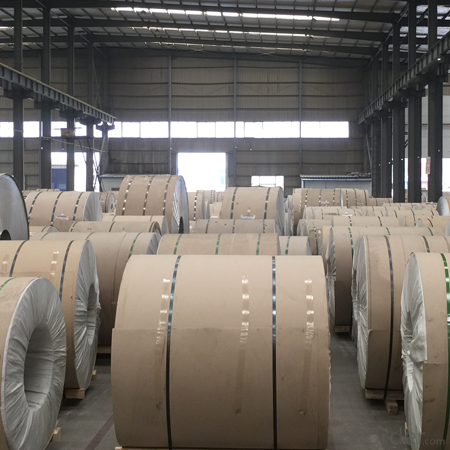
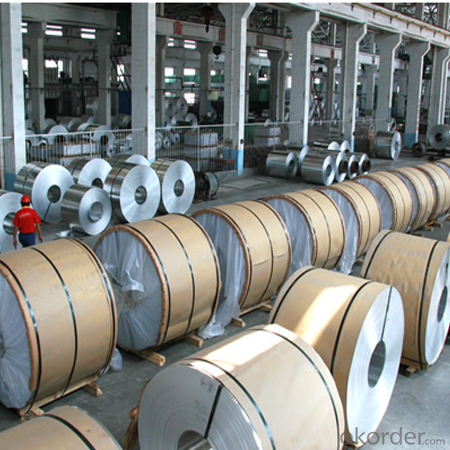
6. Package and shipping of AA3003 H12 Direct Rolled Aluminum Coil China Factory Direct Selling
eye to wall
eye to the wall
with wood pallet (wooded case also available)
7. FAQ
1) What is the delivery time?
Dpends on actual order, around 20 to 35 days
2)What is the QC system:
We have QC staff of 20 persons and advanced equipment, each production is with MTC traced from Aluminum ingot lot.
3) What market do you mainly sell to?
Australia, America, Asia, Middle East, Western Europe, Africa etc
- Q: What are the manufacturers of color coated aluminium rolls made of aluminium in Jiangsu?
- Jiangsu Dongwu new Mstar Technology Ltd is located in the Yangtze River Delta Jiangnan Industrial City - Changzhou, the company covers an area of more than 10 square meters, the existing standard workshop of more than 50 thousand square meters, is a professional production of color coated aluminum coil, aluminum film, aluminum veneer, aluminum ceiling and other new building materials of the modern enterprise.
- Q: How to pull the aluminum coil purchased into aluminum sheet?
- You can use decoiler machine, but after decoiling, the embossment of embossed aluminum sheet will become very shallow.
- Q: Are aluminum coils resistant to oil and grease?
- Yes, aluminum coils are generally resistant to oil and grease.
- Q: Are aluminum coils suitable for curtain wall systems?
- Yes, aluminum coils are suitable for curtain wall systems. Aluminum is a popular material choice for curtain walls due to its strength, lightweight nature, and corrosion resistance. Aluminum coils provide flexibility in design, ease of installation, and durability, making them an ideal choice for curtain wall systems.
- Q: Would an SS scribe scratch an aluminum plate? What is the hardness value of both metals?
- SS and aluminium are available in very many shape and sizes SS is very much harder than aluminium aluminium has a hardness of 28 SS 90 to 100 Guru
- Q: What are the different coil leveling options available for aluminum coils?
- There are several different coil leveling options available for aluminum coils, depending on the specific requirements of the application. 1. Roller Leveling: This is a common method used to flatten aluminum coils. It involves passing the coil through a series of rollers that apply pressure to the material, gradually reducing its thickness and leveling out any imperfections. Roller leveling is efficient for achieving flatness and can handle a wide range of coil sizes and thicknesses. 2. Stretch Leveling: This process involves stretching the aluminum coil in a controlled manner to remove any residual stress and improve its flatness. The coil is passed through a series of powered rollers that stretch and elongate the material, resulting in a more level and stable product. Stretch leveling is particularly effective for thicker and wider coils. 3. Tension Leveling: This method uses tension to remove any waviness or unevenness in the aluminum coil. The coil is passed through a series of bridle rolls that apply tension to the material, effectively flattening it out. Tension leveling is commonly used for thinner gauges of aluminum and can handle high-speed processing. 4. Precision Leveling: This is a specialized leveling process that is often used for high-precision applications where extremely flat and uniform coils are required. Precision leveling involves using a combination of roller leveling, stretching, and tensioning techniques to achieve the desired flatness and eliminate any imperfections in the material. This method is commonly used in industries such as aerospace, automotive, and electronics. Overall, the choice of coil leveling option for aluminum coils depends on factors such as the desired flatness, coil thickness, width, and the specific requirements of the application. Each method has its own advantages and limitations, and it is important to select the most appropriate option to ensure the highest quality end product.
- Q: How do aluminum coils contribute to fire safety?
- Aluminum coils contribute to fire safety by being non-combustible and having a high melting point. This means that in the event of a fire, aluminum coils will not burn or contribute to the spread of flames. Additionally, they are often used in fire-resistant building materials and electrical wiring due to their ability to dissipate heat efficiently, reducing the risk of fire hazards.
- Q: This question asks for methods to assess the quality of aluminum coils.
- <p>To determine the quality of aluminum coils, consider several factors: purity and alloy composition, which affects strength and corrosion resistance; surface condition, checking for scratches, dents, or impurities that can affect performance; mechanical properties like tensile strength and elongation; and dimensional accuracy, including thickness, width, and straightness. Conduct tests such as hardness tests, tensile tests, and corrosion resistance tests. Visual inspection and using measuring tools for dimensional checks are also crucial. Compliance with industry standards and certifications from recognized bodies can also indicate quality.</p>
- Q: This question asks about the impact of aluminum coils on safety and health protection during welding processes.
- <p>Aluminum coils can significantly affect welding safety and health protection due to their unique properties. Aluminum is lighter than steel and conducts heat quickly, which can lead to faster heat transfer to the welder, increasing the risk of burns. Additionally, aluminum welding produces fumes that contain aluminum oxide, which can be harmful if inhaled over time, potentially causing respiratory issues or even neurological damage. Welders must use proper ventilation and respiratory protection to mitigate these risks. Moreover, aluminum's high reflectivity can cause intense light exposure, necessitating the use of appropriate eye protection to prevent eye injuries. Overall, aluminum welding requires specific safety measures to protect welders' health and safety.</p>
- Q: Describe the process of rolling aluminum coil in a few sentences.
- <p>The process of rolling aluminum coil involves several key steps. Initially, aluminum ingots are heated to a specific temperature to make them pliable. Then, they are passed through a series of rolling mills where the ingots are pressed and shaped into thin sheets or coils. This process reduces the thickness and increases the length and width of the material. During rolling, the aluminum may be annealed to improve its ductility and strength. After rolling, the aluminum coil is cooled, cleaned, and inspected for quality. The final step includes coiling the rolled aluminum into manageable rolls for storage and transportation. This process is critical for producing aluminum coils used in various industries such as construction, automotive, and packaging.</p>
Send your message to us
AA3003 H12 Direct Rolled Aluminum Coil China Factory Direct Selling - Aluminum Coil Canada
- Loading Port:
- Shanghai
- Payment Terms:
- TT OR LC
- Min Order Qty:
- 5 m.t.
- Supply Capability:
- 10000 m.t./month
OKorder Service Pledge
OKorder Financial Service
Similar products
Hot products
Hot Searches
Related keywords
